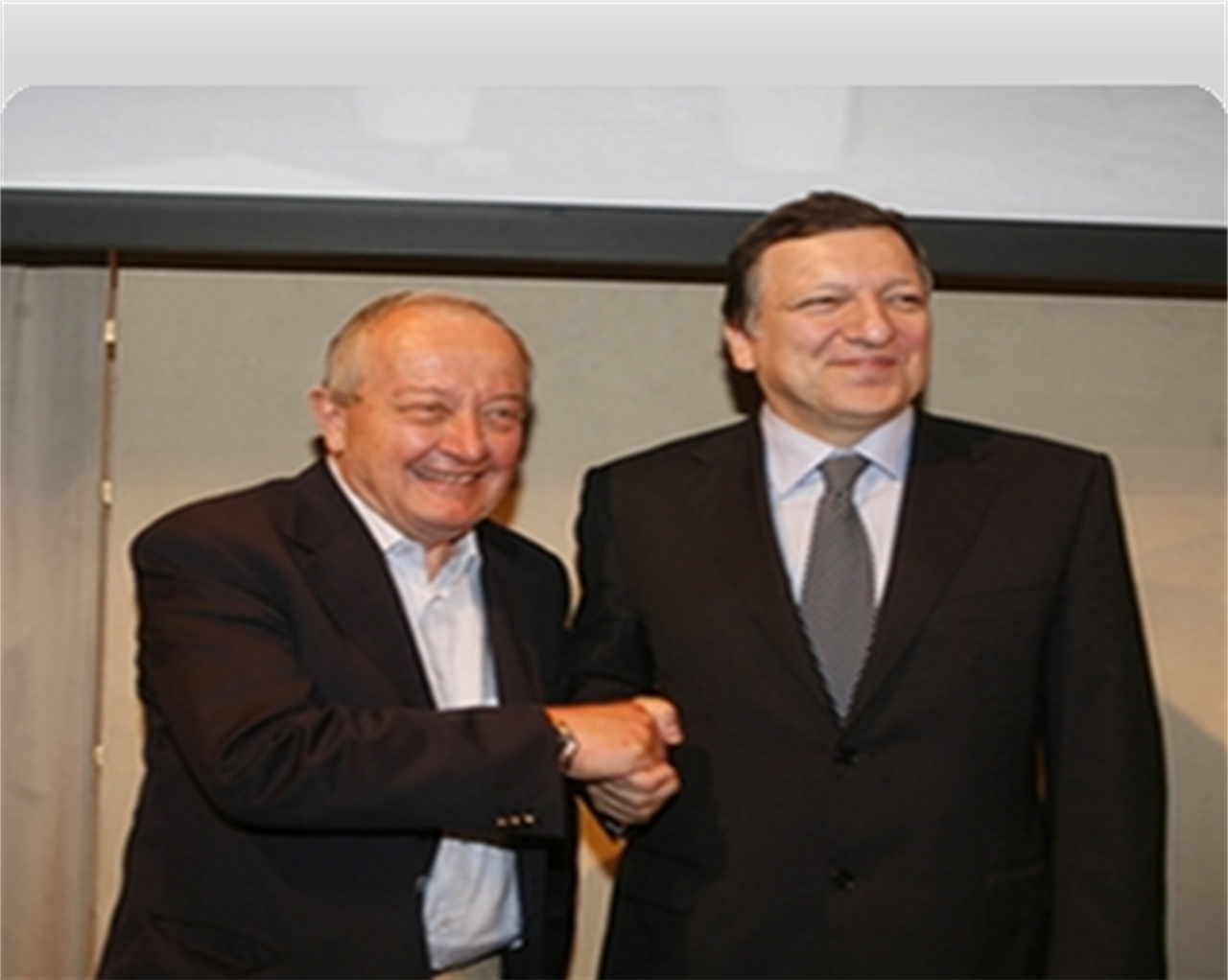Non profit
A pact against exclusion
The EESC conference on education to combat social exclusion hopes to directly influence EU policy.
di Rose Hackman

Florence, Saturday May 22: Mario Sepi, president of the European Economic and Social Committee (EESC), presented José Manuel Barroso, president of the European commission, with a green paper full of concrete proposals from civil society putting education at the heart of anti-poverty action in Europe.
Accepting the paper, Barroso called for a “better integration of women, elderly people and immigrants.” He stressed the importance of member states working on a par with the commission on social issues, vowed to defend European social policy “despite” the budget crisis and expressed a need for a change in societal attitudes.
“Let us transmit messages of openness to our children,” the Portuguese president of the commission said in an immaculate French.
The exchange marked the conclusion of a three day conference called ‘education to combat social exclusion’ organised by the EESC in collaboration with the Tuscan region.
Civil society leaders, students, doctors, spokespeople, journalists, religious people, activists and innovators mixed with a wide variety of representatives from EU institutions and national governments.
Presentation space was given to most of these categories as an invitation to share their experiences and beliefs within the subjects of education and poverty.
Interventions went far beyond the classical approach of schools and parenting, starting with the first one which belonged to the host, Mario Sepi himself:
“In order to tackle poverty,” the Italian former unions leader said, “we cannot just educate the poor, but we must also educate the rich.”
Strong words
Beautiful surroundings – events took place in the 600-year-old Istituto degli Innocenti orphanage – framed a buzzy atmosphere filled with debate, and a general feeling of urgency to act.
Now more than ever, finding inspiring methods to diffuse across the continent seems a necessity. 80 million Europeans suffer from poverty and figures are looking to get worse, not better. The financial crisis has meant that it is the the people already held back by difficult conditions and less privileged backgrounds that are suffering the most.
Didier Chabanet, a researcher for the French ENS in Lyon, pointed out when he presented on Friday 21, that “unemployment may be rising across the board, but it is clear that the weightier your educational baggage, the more likely you are to be able to establish a coping system and strategy which will get you out and back onto the job market.”
A reason for which Anna Diamantopoulou, the Greek minister for education, stressed that education was still being given priority in her country.
“Even in this very difficult situation, the priority is on educational reform. Education is the sector suffering the least cuts,” she said on Thursday 20, when she also took the opportunity to underline the two way connection between the social and economic spheres, as seen in her home country.
“The economic cost of not having social policy is huge. And one component of the debt and the deficit is that we do not have social policy.”
Local speakers
Although many more noted European speakers, such as Martin Hirsch, Isabelle Durant and Fintan Farrell flew in to participate, the spontaneous interventions of local activists were perhaps the most striking.
While Simona Taliani spoke up against medicalising social problems of integration and immigration in schools in Italy, sister Julia Bolton Holloway, a British former Colorado university professor, stood up to make a very heartfelt plea about the situation of the Roma in Florence.
“They have skills. They repaired the crumbling walls of the English cemetery here in two hours. Years later, they are still in immaculate condition. They have a lot they could teach us, if only we would let them.”
Finally, after further emotional speeches, including a direct attack on the Caritas, Bejzak Aden, a Roma activist and writer who moved to Florence from Kosovo, took to the floor to have his own say. His less than perfect Italian did not hinder the strength of his message.
“Why aren’t we fully recognised as a people in Europe,” he asked, “what will it take for my people to stop being pushed to the margins of society and be treated like human beings?”
A clash in straight forward language from first-hand experiences and institutional big-worded lingo meant that it was not clear whether his questions fell on deaf ears, or whether on Saturday May 23, Mario Sepi did in fact hand to José Manuel Barroso what could be the beginning of an answer.
Cosa fa VITA?
Da 30 anni VITA è la testata di riferimento dell’innovazione sociale, dell’attivismo civico e del Terzo settore. Siamo un’impresa sociale senza scopo di lucro: raccontiamo storie, promuoviamo campagne, interpelliamo le imprese, la politica e le istituzioni per promuovere i valori dell’interesse generale e del bene comune. Se riusciamo a farlo è grazie a chi decide di sostenerci.
